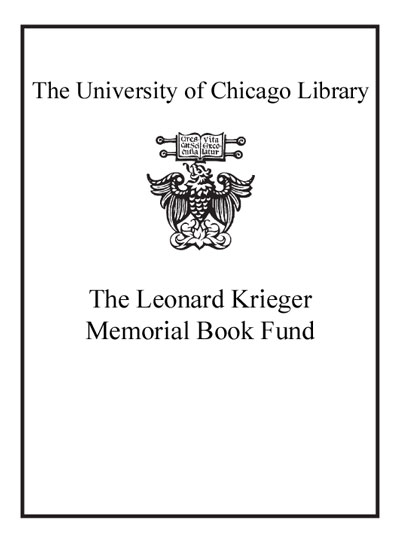Review by Choice Review
Fritzsche's engagingly written account presents a lively picture of several turning points in 20th-century Germany: the exuberant outburst of German national unity in July 1914, the revolutionary setting in November 1918, the National Socialist activism of January 1933, and the May Day mobilization of 1933 that accompanied Hitler's Gleichschaltung of German workers and political parties. What links all of these critical events, according to Fritzsche, is the provocative contention that Nazism was part of a broader trend in German politics since the outbreak of WW I. Nazism attempted to regenerate the nation by enhancing its sovereignty and social recognition through chauvinistic nationalism. Fritzsche rejects the traditional interpretation that National Socialism appealed to German voters in the early 1930s because they resented the Treaty of Versailles, faced ruin by the Great Depression, or harbored antisemitic prejudices. Fritzsche's new interpretation that Nazism succeeded because of its populist nationalism will have to be bolstered by further empirical research to become convincing. Complements but does not negate the multicausal conclusions of such seminal works as Karl Dietrich Bracher's The German Dictatorship (CH, Apr'71), Richard F. Hamilton's Who Voted for Hitler (CH, Nov'82), and Thomas Childers's The Nazi Voter (CH, May'84). Suitable for undergraduates and above. G. P. Blum; University of the Pacific
Copyright American Library Association, used with permission.
Review by Publisher's Weekly Review
Everyone knows that the Germans turned to the Nazis when dismay over the Treaty of Versailles mixed with the depredations of the Great Depression. Fritzsche (Reading Berlin), however, quickly points out flaws in the scenario. To start, every party in Germany excoriated Versailles, and the people hardest hit by the recession were not the ones most likely to vote National Socialist. It is as a broader social revolution that Fritzsche attempts to make sense of Nazism. As Kaiser Wilhelm hoped, WWI unified Germany; but after withstanding four years of privations with little help from the monarchy, ordinary Germans emerged with a new sense of their worth within the society and with the German volk, a vitally different entity from the Hohenzollern Empire. By 1933, Germans were law-and-order chauvinists, and Nazis seemed to offer order and a national vision that embraced all the volk. Well researched and succinct, this history offers a nuanced view of a complicated history. As for Germany's uniquely murderous anti-Semitism, Fritzsche notes (without mentioning Daniel Goldhagen by name) that the complicity of so many ordinary Germans in the murder of Jews "was not so much the function of genocidal anti-Semitism which they shared in uncomplicated fashion with Nazi leaders; rather over the course of the twelve-year Reich, more and more Germans came to play active and generally congenial parts in the Nazi revolution and then subsequently came to accept the uncompromising terms of Nazi racism." (Mar.) (c) Copyright PWxyz, LLC. All rights reserved
(c) Copyright PWxyz, LLC. All rights reserved
Review by Choice Review
Review by Publisher's Weekly Review

